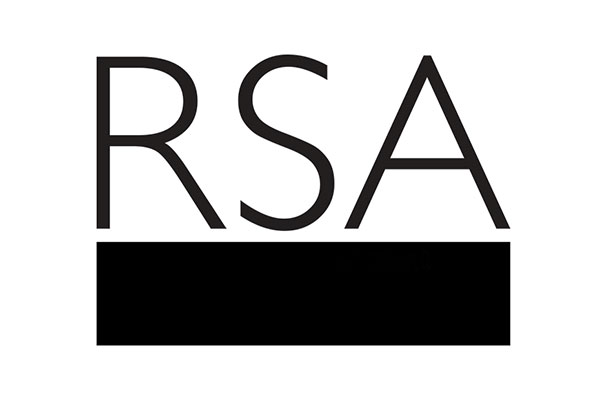I saw two main strands to the RSA’s recent Generation Enterprise report written by Adam Lent, our Director of Programme. One charts the increase in entrepreneurialism among today’s generation of young people and analyses its causes and effects. This was explored both by the headlines that the report received in CityAM, Evening Standard and in the RSA Event with Madsen Pirie and Martha Lane Fox. I want to explore the other, Adam’s identification and analysis of the social effects of what he calls ‘self-generated value’. ‘What’s that?’ you might ask:
“In a growing number of areas, the consumer no longer has to rely on the insight of the entrepreneur to obtain value. Instead, the consumer can generate that value for him or herself. Think, for example, how the most potent source of detailed factual knowledge across the world is now an online encyclopaedia written by its readers.” (See my colleague’s blog for some well-known examples of where SGV has been applied in practice).
As Adam, says, the phenomenon has been identified before, and called pro-sumption (the merging of the production and consumption). But he goes on to say:
“What is truly revolutionary about the new worm-hole [caused by the creation of the internet] is not the collapse of the distinction between production and consumption per se but the new capacity of individuals to start generating value for themselves in ways which continue the capitalist trend towards the creation of ever greater value for millions of consumers.”
Though I will be reading Tapscott and Williams’ Macrowikinomics and Doc Searls’ The Intention Economy to find out more, I wanted to illustrate my initial understanding of this through some of the RSA Fellows’ ventures supported by RSA Catalyst in a few different areas of value-creation. In one sense, these examples don’t really do justice to what Adam is focusing on. His focus is on quite conventional products and services purchased in the private sphere (music and t-shirts) rather than any kind of service in the social sphere (personal education, food waste and care). Indeed, half the point was to show the value to society of improvements in private consumption. But I think hope these examples demonstrate the trends Adam identifies in the private sector to an audience from the public and third sectors, drawing on manufacturing and commercial expertise to deliver more effective undertakings explicitly for the public good.
Production of knowledge-based goods. Services like facebook and twitter offer blank slates upon which users inscribe their own value and meaning, together creating huge value for its participants.
-
Omnifolio is building a service for users to track their traits, work experience, formal and, crucially, informal educational (such as books read, lectures attended). They hope resulting profiles will help people find, train for and better communicate one’s suitability to potential employers.
Pricing and distribution. Adam gives some examples of sites dedicated to getting consumers to club together to negotiate on price over a product the ‘crowd’ desires and how consumers now exert greater control over when their purchases are delivered.

-
Plan Zheroes; rather than businesses throwing away and paying councils (sometimes by the tonne) to take good food to waste, this map makes it simple to find a charity nearby and organize to drop off surplus food to a local soup-kitchen, community group or food redistribution programme. Over 300 businesses have signed up so far. By giving the market small amounts of information about waste, participants are helping others provide a service that takes away the guilt of throwing away edible food at the end of the day.
Marketing. It may seem strange to see marketing as an integral part of creating value. But it is indeed since advertising can make low-value product look or feel valuable and that consumers are swamped with a huge variety of products and services, the difference between which is increasingly meaningless.
-
Rate My Care; an online platform for rating social care providers, providing a resource for people unsure where they should residential to an elderly loved-one. As well as opening up marketing of particular services, these ventures also emphasise the need for consumers of services to give input into the re-design and improvement of the services.
The Generation Enterprise publication is a good read and the lecture a good listen. I hope it sparks ideas for a new solution for people to generate value for themselves. If it does this, feel free to throw your idea into the Catalyst programme.
Alex Watson is former Catalyst Programme Manager – follow him @watsoalex
Related articles
-
Empowering Women farmers in Vietnam
Alison Kwan
How Alison Kwan FRSA, winner of RSA Catalyst Seed Grant, is using the Grant to create an innovative, sustainable way to empower Women in Central Vietnam to be independent farmers.
-
Cooking with Mama
This is a guest blog from Jennifer Fong FRSA. Jennifer is Founder and Co-Director of Cooking with Mama, a project which received Catalyst funding earlier this year.
-
The Big Idea: Street-based business training for young creatives
This is a guest blog by Lisa Oulton FRSA. Lisa was awarded RSA Catalyst funding for her project to help young people start creative businesses, and is now seeking crowdfunding to run a Festival of Enterprise in November. You can support her campaign on Kickstarter.



Be the first to write a comment
Comments
Please login to post a comment or reply
Don't have an account? Click here to register.